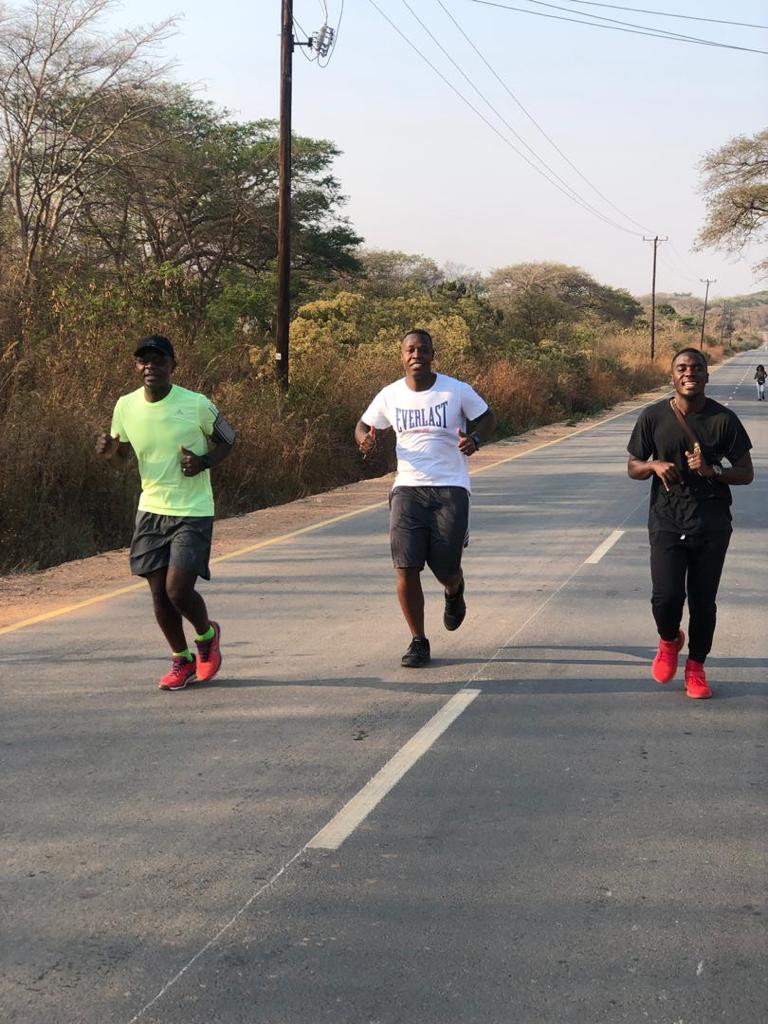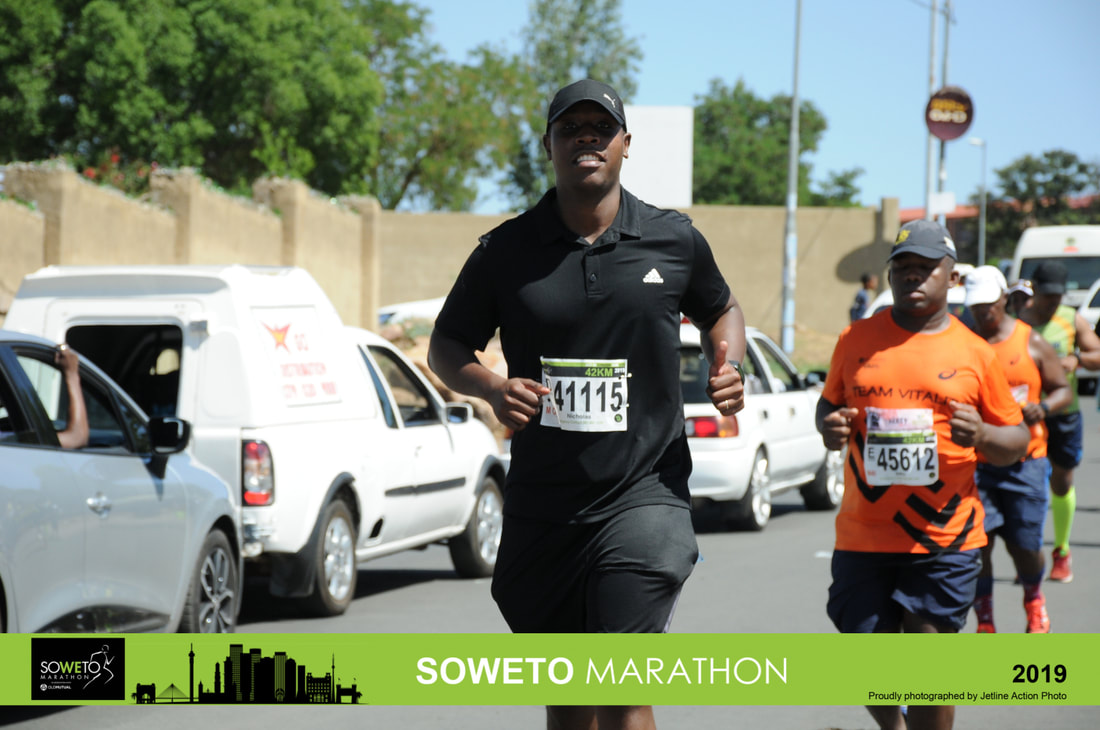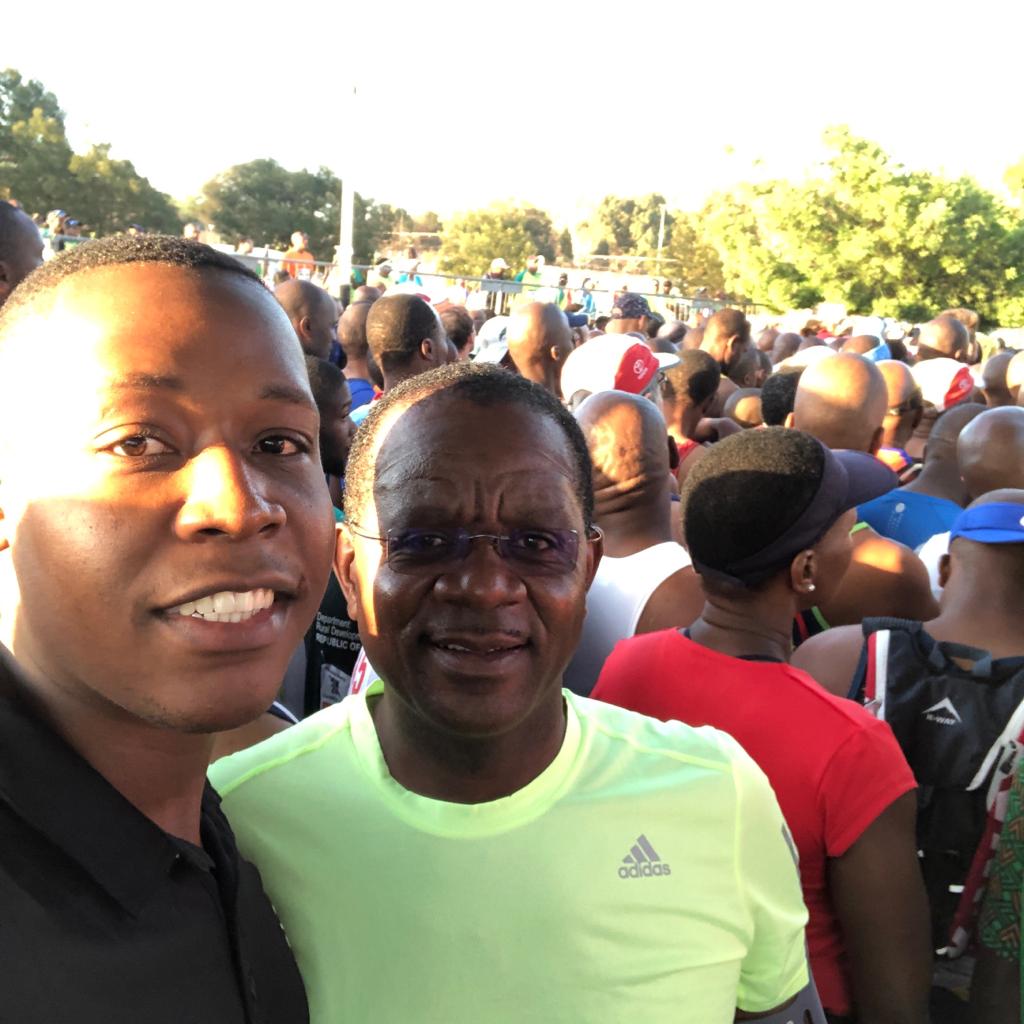|
Most recreational runners run because they want to lose weight. Men want to get rid of their beer bellies and women want to drop down a dress size or two. Few runners ever do it for fitness or entertainment. If you run, be very clear on why you run and then proceed to optimize your running for the outcome that you want.
In a previous blog post I clearly state why I run, but this was a belated revelation. I started running to lose excess weight. In the beginning the weight melted right off but after some time I plateaued. No matter how far or how hard I ran I just couldn't drop any more weight. I was frustrated, tired and constantly hungry due to various crash diets I decided to adopt in a desperate attempt to lose weight. There's many other runners like me that are persisting to run but not improving their situation. I want to help end your frustration. This is what I recommend when you're chasing weight loss through running:
Run. Shed. Look & feel better.
3 Comments
I spent roughly 3 months training for my first marathon outing. I was mentored but I also learnt a great deal from personal experience and this is what I want to share with others. You don’t have to make my mistakes in your training and suffer unnecessarily on race day.
This is what my training looked like: My peak week mileage was 60 kilometers, and the average weekly mileage was 30 - 40kms which mostly comprised of 10 - 12 kilometer runs. The vast majority of these runs were steady state runs of moderate intensity and a few hard runs where I really pushed the pace when I felt good. My training was mostly intuitive based, which meant that my intensity was determined by how I felt on a given day. Overall, it was a pretty plain vanilla training plan. These are the mistakes I made: The biggest mistake I made was a one sided training program primarily consisting of steady state runs at moderate intensity on the same route, day in and day out. After belatedly reading Matt Fitzgerald’s 80/20 running book I’m now an advocate of running 80% of my runs at low intensity, and 20% at high intensity in a modified, polarized approach to training. I discuss the principles and benefits of this approach in a training article here. I didn’t prioritize the inclusion of quality workouts and higher weekly mileage. I ran a few long runs, with the longest being 26 kilometers but I did so sparingly. 30+ kilometers into my marathon race and I quickly started to regret this decision. Long runs in particular build endurance and fatigue resistance like no other. The more of them you do, and the longer the distance/time spent on your feet, the better off you’ll be. Higher weekly mileage is required to ensure adequate volume and higher fitness levels in a training block. The more you run, the better you'll get. I didn’t optimize my daily nutrition for performance and body re-composition. I was running what I felt was a fair amount of mileage so I decided to eat as I wished. I did lose quite a bit of weight training for the marathon but my unplanned eating choices led to me showing up to my race at a less than optimal weight. This started to burden me 2+ hours into the race. It’s simple: the lighter you are, the easier your race is going to be. When it comes to body composition, the less fat you have the better. High protein, moderate carbohydrates and low fat works well for a runner seeking body re-composition in the building phase of your marathon training prep. As you progress towards higher mileage and peak week, a high carbohydrate, moderate protein and low fat approach can then be adopted to support the training load, sustain performance output and maintain the physique you’ve built up. The training period of 3 months was inadequate and intuitive based training is unwise when you’re building up to race fitness. As a running coach I now recommend that all my clients wishing to run a marathon must train for a minimum period of 16 weeks and an optimal period of 20 - 24 weeks. With regards to intuitive based training, this approach is ideal only if you’re not actively preparing for a marathon. If you are preparing for a marathon, then you need a plan and you better stick to it. If it’s the right plan for you then it will help you improve, you just need to stay consistent. Unless you like to learn things the hard way, this is what you should do for a smoother marathon race experience:
Run smart. Don't make your marathon race experience a miserable one. The team woke up at 3 am and promptly began to get ready (shower, eat etc.) for our races scheduled to start between 5:00 and 6:30 am. We were on the road 45 minutes later and on our way to the FNB Stadium where the race would start but we didn’t anticipate what we would find on the road…TRAFFIC! It was so bad my dad & I had to abandon the vehicle with my wife & mother in it to start running towards the start of the race. It was 2+ kilometers but we made it on time. This served as a forced warm-up!
The race begins: I started off feeling good, feeling strong and decided to pay attention to my environment because I mean, WE WERE RUNNING THROUGH SOWETO! It was so exciting to be running the ‘people’s race’! Barely 5kms into the race we had our first encounter with the people – they were holding out beer and ciders and offering it to runners! They were bizarrely marketing them as energy drinks! LOL! Some runners grabbed the alcoholic beverages and consumed them, while others laughed and ran past but all in all it was an entertaining introduction to the race. These offerings were a constant feature throughout the race. 10+ kilometers into the race and the unforgiving sun started to dish out some serious punishment on all runners. We endured the heat with the help of residents who were outside with hose pipes ready to help you cool down from the brutal temperatures. Others had potato chips and plain old salt to help you hydrate and replenish sodium, while the rest offered various fruit and foods from their personal homes. It all culminated into amazing support that was freely provided out of the goodness of people’s hearts. 20+ kilometers into the race they had speakers blasting South African music with people merrily dancing along at various checkpoints. It was fun to witness and the music (and dance off) gave runners a bit of a push; some boostele! It reminded me of times when I’d be on a training run with my favorite earphones plugged in and the activity started to feel challenging but enjoyable and bearable because of the music. Music keeps you in motion. 30+ kilometers into the race and things started to get real. All marathon runners had name tags pinned on the front of their jersey and when my struggles became apparent bystanders began to encourage me by name – “C’mon Nicholas! You can do it. The finish line is just around the corner.” The part about the finish line being close was mostly a lie but it gave me hope of eventually making it there if I just kept moving forward. I really appreciated the support and the well-meaning lies. I can’t really explain how grateful I felt towards the people and now I know what it feels like to be cheered on and encouraged by strangers when you need it the most. 42.2 kilometers later I was at the finish line exhausted and proud. The Roadrunner Zambia concept was conceived at that very moment and now we’re here. This is what I learnt from this experience:
Beautiful people of Soweto, I hope to see you again soon. On this day, last year, I ran my very first full marathon; The Soweto Marathon. I didn't realize it at the time but in retrospect it turned out to be perfect timing and one of the best decisions I ever made. I can't take all the credit though, because I was given more than a little nudge before I got there. After running a handful of shorter distances my father convinced me to go all the way this time around and honestly, I was intimidated by the distance but he encouraged me and convinced me that it was possible. I signed up, trained for it and completed the distance in conditions akin to hell's kitchen! That accomplishment, to this day, remains my proudest moment.
This is my tribute: Dad, you're a role model, marathon veteran and running legend with OG status in my eyes. I want to keep pushing the pace with my running and life like you do. To be better than yesterday. To run harder, run farther than yesterday. You taught me that the marathon was simply a metaphor for life. If you can overcome the hardships presented in a marathon and endure the pain & suffering, then you can overcome anything life throws at you. You're conditioned to keep moving forward no matter how hard it gets because running develops perseverance and character. Thank you for running with me. Now I strive to become to others what you are to me through Roadrunner Zambia. I'm a different beast today because of you...I'm built to endure. Here's how you can learn from those that came before you and help those that will come after you:
Go the distance. |
Nicholas MajulaCategories
All
Archives
August 2023
|
Photos from Wilka, OLCR, SqueakyMarmot, ella.o, shixart1985, frank.shepherd, orlandofringe, Free Public Domain Illustrations by rawpixel, wuestenigel, wuestenigel, MattysFlicks, Tobyotter, wuestenigel, Andrew Gustar, Artotem, wuestenigel, aqua.mech, homegets.com, wuestenigel, shixart1985, DVIDSHUB, wuestenigel, focusonmore.com, wuestenigel, quinn.anya, airdrie.m, htomari, denisbin, One Way Stock, shixart1985, The Nutrition Insider, planetlight, volkspider, wuestenigel, Ray in Manila, M McBey, Jodiepedia, Ivan Radic, middlekidd, The National Guard, twm1340, stoneysteiner, wuestenigel, focusonmore.com, wuestenigel, wuestenigel, mobilyazilar, wuestenigel, byzantiumbooks, Geometric Medical Animation, wuestenigel, thedailyenglishshow, TipsTimesAdmin, wuestenigel, f097653195018, Lucíola Correia, MassiveKontent, wuestenigel, wuestenigel, Clotee Pridgen Allochuku, Matt From London, @Yancy, Cold, Indrid, wuestenigel, wuestenigel, Doctor4U_UK, rockindave1, wuestenigel, Alan Cleaver, blue_j, Jenn Durfey, wuestenigel, Rennett Stowe





